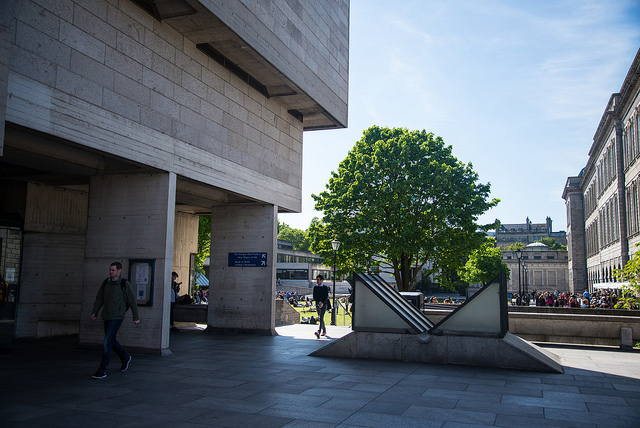Trinity has extended its admissions feasibility study to increase Northern Irish applicants for a fifth year, after the College announced the first fall in applications from the North in four years during the summer.
This year marked the first fall in applicants from the North since the study began in 2014. Between 2015/16 and 2017/18, the number increased by 22 per cent, before dropping this year from 964 to 759.
The uncertainty surrounding many aspects of Brexit, as well as Dublin’s accommodation crisis, has been cited as a potential deterrent to students from the North. UK universities also issue early conditional offers to prospective applicants, in contrast to in Ireland, where CAO offers are not made until August.
The Northern Irish Feasibility Study was launched in 2014 and aims to find new ways of admitting A-level applicants from Northern Ireland, with a view to increasing the number of students from the North.
The feasibility study is part of Trinity’s Northern Ireland Engagement Programme, which focuses on the promotion of Trinity at career fairs as well as in schools throughout Northern Ireland. In addition, it aims to improve the overall College experience of Northern Irish students once they arrive in Dublin, and seeks ways to make admissions fairer for Northern Irish applicants, who face many challenges under the current system.
The study initially came about to reverse a longstanding decline in applicants from Northern Ireland, as a result of challenges posed by the discrepancies between the A-Level and Leaving Certificate scoring systems.
Northern Irish applicants often find it difficult to get places on high-points courses in Trinity due to the way A-Level grades are converted to points. Northern Irish students are also usually required to have four A-Levels to be be eligible for admission, but only one in eight students in Northern Ireland takes four subjects. The feasibility study allowed a number of students with only three A-Levels, or who have failed to meet the exact points requirements, to be admitted to courses in Trinity.
In a report circulated to members of University Council, Martin said Trinity’s target to attract 300 students from Northern Ireland, which would make up eight per cent of the undergraduate intake, was ambitious, given that only 226 students from Northern Ireland enrolled in Irish third-level institutions in 2015/16.
Trinity’s admissions feasibility studies have been considered groundbreaking for challenging the current points system by finding new ways for applicants to be assessed. However they have also caused controversy, with former General Manager of the CAO, John McEvoy, labelling the move an “outrageous experiment” that used students as “guinea pigs”.
Trinity has recently experienced a fall in international rankings, falling outside the QS top 100 for the first time ever this year. CAO applications to Trinity also fell by eight per cent this year.







